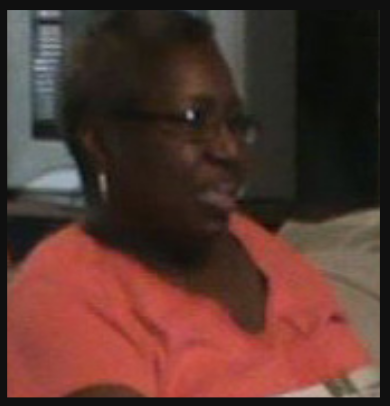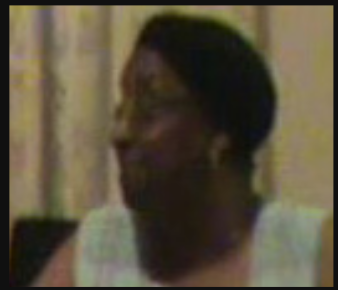Overall, “I liked it...I had some hard jobs
that weren’t fit for a man, much less a
woman, but never mind...”
Re: the union, “I always called them
‘our lawyer on retainer.’ The union was
very necessary.”
Mildred Hopkins

Interviewed conducted on August 28, 2010, by Dorothy Johnson and Mary Johnson
Born and raised in New Haven, Ms. Hopkins lived in New Haven County, including 20 years in West Haven, all her life. Her
mother was a “homemaker,” and “my father wasn’t around very much.”
She started at Winchester because one sister already worked there, and worked there for 20 years, “15 at Winchester and
five at USRAC,” (U.S. Repeating Arms Company, its subsequent name.) Four more sisters also went to work there, and at
one point “there were five of us at one time.”
Hopkins’ first job at the plant, in 1962, involved piece work on the milling machines. “I was young and fast.” She also
worked in the tube shop, in the woodbine, in ammunition and, after ammunition was outsourced, in armaments, and she
was an inspector. Generally, she worked second or third shift, “for the convenience of my children.”
Apart from a layoff in 1985, when she went to work at Pratt & Whitney for four years until getting called back, she never
really thought of leaving “because of the convenience” (it was close to where she lived). “The money was pretty good and
the benefits were pretty good. I was glad to work there.” With her husband working at Armstrong Rubber, they were able
to “put my kids through private school.”
Although she was not too involved in the social life among the workers at the plant “because my kids were small,” her best
memory of the plant is “the people” she worked with, “and some of the bosses weren’t so bad.”
HER WORK
Overall, “I liked it ...I had some jobs that weren’t fit for a man, much less a woman, but never mind...Some of the jobs were hard and heavy... I used to have to bear down” on some “big machines.”STRIKES AND ISSUES
Ms. Butler worked at the plant during the 1969 as well as the 1979 and 1980 strikes, and recalls that the ’69 strike “wasn’t such an angry strike, but the ’79-’80 one was a very angry strike. There was a lot of fighting on the line. Some of our people got knocked around—even on Family Day with children there... It was a hurtful thing to see our policeman doing that kind of stuff.” It was a long strike, and in the end, she felt “the company met us more than half way.”Health and Safety: Did people get hurt much on the job? “Not seriously, that I remember...There was one incident [where] one of our people was given a warning because she had an infected finger [because of a piece of metal in her finger] and she was ‘cited.’ ...The union got that dropped. It was asinine.”
Martin Luther King Day was not a paid holiday until after she left, although there was an option to take the day off without pay.
On Company Requests for Union “Givebacks”: “They had people over a barrel. [Some people said, ‘I’d rather give back than not have a job.’”
THE UNION
“The union was there when I came. (Everyone had to join.) It was a closed shop. They had no choice.” Although she never held a union office or was part of a union committee, she felt that “the union was very necessary...I always called them ‘our lawyer on retainer.’ ...If there hadn’t been a union” the company would “run over people.”Because she was “out” for four years on layoff, she lost her “time,” but was able to get it back with the help of her union steward, who “did more than the higher ups in the union...’No, we’re not going to let that go.’ We fought and we won.”
“The union was pretty powerful when I was there but it got weaker as time went on.”
THE CLOSING
The plant closing occurred long after she left, but she had friends who were still there at the time who “were really devastated. You think you’re good to go until you are ready to retire and then...“Unions have to start forming again.
“There were good jobs...There is nothing here now, and it’s very sad.”
“At the time the pay was pretty decent and my children were pretty small and it was nearby in the neighborhood.”
Marie Boulware

Interviewed conducted on August 24, 2010 by Dorothy Johnson
Marie was born in New Haven and her father worked at Winchester for over 20 years in a number of positions
including as a gun tester; her brother worked there for eight, as a polisher. Her father retired shortly after she got
there, just after the 1979-1980 strike, but she stayed for 26 years, until the plant closed in 2006. She held a number
of jobs there, including that of assembly worker and machine operator.
She said she remained there for so many years because “the pay was pretty decent” for the time, and the plant was
conveniently located in the neighborhood, a plus especially when her children were small.
She did not hold a union or committee position and mostly wasn’t involved in the social life there, although she
remembered that “four or five of my co-workers were in a band...the Winchester Specials...” and that there was
always a program for Black History Month.
Re: the cutbacks and givebacks demanded by the company, she said that although “they didn’t want to...[the union]
gave in to the company to keep their jobs.”
She was laid off several times, once for a year.
SHUTDOWN, AND THEN CLOSING
Coming off the Christmas shutdown in early 2006, she and her friends met some of their co-workers who told them the plant was closing. They were upset. Where would they go to find jobs? “A lot of my co-workers did not know how to use a computer.”She herself applied for and got a job at Yale New Haven Hospital in December 2006.
How did you feel about working at Winchester?
“It was a job.”
What about the union?
“I guess they did the best they could.”
Why did she stay at Winchester?
“It was a job, I had a family to
support, and I liked my co-workers.
We had fun.”
Regarding scabs who stayed after
the strikes ended and were therefore
required to become union members:
“They paid their [union] dues, but
that’s about it. But they complained.
[I said] ‘What you complaining about?
You came in here as a scab and now
you’re making more money.’”
Edna L. Hudson

Interviewed by Dorothy Johnson and Lula White on June 30, 2010
Ms. Hudson left the company in 1997, long before the closing, but she but was there during both the 1969 and 1979-
1980 strikes. Why did she stay for so long? “It was a job, I had a family to support, and I liked my co-workers. We had
fun.”
During the 1979-1980 strike, she went to school to become a Certified Nurse’s Aide. She flew to Florida in the winter with
the people she was taking care of, and her employer flew her back to do her picket duty. “I had to be on line,” she said,
although strikers received only $40 a week for picket duty. The CNA job was “the only way I made it” through the strike.
She was not arrested during the contentious strike, but many co-workers were. She recalls helping to “hide” one striker
who was being pursued by the police and attempted to disguise himself by donning a trench coat. “Then I had to get on
the plane and go back to Florida.”
TELLING THE TRUTH
Some of the “scabs” who were recruited by the company during the strikes remained afterwards, although a lot of them had to leave. Those who stayed had to become union members, and “they paid their dues, but that’s about it.” Nevertheless, they complained. Her response? “What you complaining about? You came in here as a scab and now you’re making more money.”She was at one point a union steward in a department of about 85 people, reporting to the Chief Steward.
She heard complaints about one union president who was a “company man.” She told him, “You’re supposed to represent the people, the employees, not the company.” He said, “I can’t get mad at you.” She said, “I know you can’t, because I’m telling the truth.”
AGREEMENTS BROKEN
According to an agreement with the city, the company received tax abatements in exchange for keeping at least 400 people in the work force. But the numbers continued to shrink. “They were supposed to give back that money,” but they didn’t. “Too many people lost their jobs.”Re: the 1969 strike: “It was bitter. A lot of things were happening because they were bringing outside people in to work. They tried to break us. But we wasn’t going to let them do that. We knew we had to stick together.”
Barbara J. Butler
Interview conducted on July 12, 2010 by Dorothy Johnson (No photo available.)
Barbara J. Butler was born in Jonesboro, Georgia where her grandparents were farmers. Her mother was a waitress and her
father a cook for the Southern Railway. She has lived in New Haven since 1956. On October 14, 1966, after marrying a man
who had been at Winchester “since the union came in 1956,” she began working at the plant making ammunition on the
“graveyard,” or 11-7 shift, working her way up to the day shift. Then, the company decided “they didn’t want to make ammo”
and sent that work to Chicago.
The company was vast, with seven floors including the basement.
Ms. Butler worked on gun assembly and did piece work for a while, “but I didn’t do too good on piece work. I was slow.” Finally,
she ended up doing “checkering” on the stocks, which she liked. She continued to do wood-work for much of her time there:
[The wood] “may come in split and you have to patch it...I worked with white wood and that’s when I learned that white wood
has fleas...” She also worked with dark wood. “You have to try to match the forms and put them together.” She liked this work
and found it interesting, but did not do the staining. Safety masks were not mandatory, and “one of my friends died. She got
that stuff on her lungs.”
Another job Ms. Butler did not do: “I never was a shooter, I never wanted to be,” although she said she later joined the rifle
shooting team for recreation, and got up early Saturday morning to practice. “I had to buy the shells but I used their gun.”
Although she held no office in the union, she was eventually picked by the company to be one of the “safety persons.” The
company provided the training.
Although both her husband and her sister-in-law left the plant, she remained working there until it closed in 2006. Several
times, she did consider leaving. In fact, she was laid off for two years, during which she worked at the Sargent Company, but
she could not keep up with the piece work and was relieved to receive a telegram from Winchester telling her to return to work.
BITTER STRIKES, “REPLACEMENT PEOPLE”
The company tried to break strikes by bringing in “replacement people,” or scabs. In 1969, the strikers held firm and won pay increases and some of their other demands. It was a bitter strike, and “they tried to break us. But we wasn’t going to let them do that. We knew we had to stick together.”During the 1979-1980 strike, supervisors joined replacement workers and the company was “bringing in beds for people to sleep. Some of the supervisors didn’t go home. We found the beds there when we went back to work.” There was daily picketing in shifts and all strikers were expected to walk the line. She took the 6-10 am shift. After the long strike ended and the regular workers returned, some of the “replacement workers” also remained, while others did not. “A lot of things were said back and forth” (between the scabs and the regular workers) “but I kept my mouth shut because what came out of my mouth I might have heard about later on.”
MARTIN LUTHER KING DAY
Until mandated by state law, Martin Luther King Day wasn’t an official holiday. Workers had the option to stay home if they chose, but without pay.“I didn’t go to work that day. I didn’t get paid for it but I stayed home...We got off for Columbus Day, why not Martin Luther King Day?”
“This company is going to go down.”
The company was always pushing for “givebacks,” but according to Ms. Butler, “the union said ‘No, why should we give up what we fought to get?’”By the time she left, employment had dwindled from the 10 to 15,000 people she remembered when she started to below 200.
Although it was obvious that work was being outsourced to a plant in South Carolina, the immediate plant closing came as a “shock...We went in and went to work and they told us to pack our stuff and go home...I didn’t know anything about it.” But she and her co-workers did “know something was going on” in advance...” As a wood inspector, she saw that a lot of inferior wood was coming in from Panama: “It was sorry. When you touch a piece of wood, you’re supposed to feel some life in it... I rejected it and within days they used it. [She knew] ‘This company is going to go down.’...”
